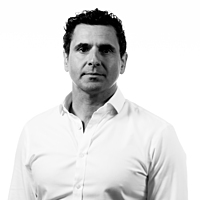Meet Tom: The small-cap tragic about to turn his pastime into a profession
At age 27, Tom has accomplished a lot. I spoke with him via Zoom from his study at Oxford, approaching the end of his one-year MBA course. He’s fresh off a win, having represented the Oxford Tennis Team in their long-standing rivalry with Cambridge, and is gearing up for the excitement of England’s run to the European Cup Final. While he has enjoyed the educational aspects of his time in Oxford, he has relished the opportunity to walk the historic streets of one of England’s most fabled cities.
The MBA at Oxford sets up Tom to take pretty much any direction he likes; in fact, he has already had a stint in management consulting. But Tom has a different path in mind. You see, Tom is a complete investing tragic (I’ve seen them before), and he is about to chase that passion and turn his pastime into a profession.
As you’ll see from Tom’s story, he lives and breathes investing, is disciplined in his approach, has a thirst for knowledge and retains the humility that no doubt will be required when markets test his nerve. I asked Tom if he had considered working for one of the many experienced small-cap managers to cut his teeth. He said he wants to retain the flexibility so that he can keep leading the Good Data Institute. A Charity he founded that helps not-for-profit organisations (NFPs) leverage the power of data analytics.
Did I mention Tom is 27? I hope you enjoy his story.
Name: Tom
Age: 27
Employment Status: Self-Employed. NFP Director. Oxford University MBA student.
Years Investing: Eight years
Investment goals: To launch an ASX small-cap focused fund in calendar 2022
Products used: Cash, ETFs, Equities
Biggest portfolio holding: Queensland Pacific Metals (ASX:QPM) (circa 25%).

(image supplied)
How old are you and how long have you been investing?
I was swept up into investing eight years ago during my initial years at the University of New South Wales (UNSW) when I was studying for a Bachelor of Chemical Engineering. As a recipient of a UNSW Co-op Scholarship, I was fortunate to have a (very) small amount of excess cash available. Having learned about the power of compounding, I chose to set up a Commsec account to begin my investing journey.
Right from my very first investments in Resmed (ASX:RMD), Orora (ASX:ORA) and a handful of microcap companies, I was hooked by the process of learning about different business models, sectors, valuations, trends and reaching out to management.
What is your objective from your investing? (For example, what is your appetite for risk and are you still working?)
I love the process of investing and my objective is to turn this passion into a career via the launch of my own small-cap fund in the future. I am currently based in the UK where I am studying for a Master of Business Administration (MBA) at the University of Oxford. This experience is providing a tremendous academic learning experience to grow my understanding of finance and economics along with providing an amazing life experience more broadly.
I cannot imagine reaching a financial threshold where I retire and no longer invest. At the end of Robin Speziale’s book Market Masters, Robin speculates on what actually makes an exceptional investor.
His conclusion was simple but important – great investors simply love the investment game.
Among the traits and abilities that lead to success, passion stands alone. Unlike skill, knowledge, or other factors, passion is innate: it cannot be learned or acquired but is always present. Passion is what generates the desire to learn, try again, and do better next time.
What products do you use to execute your strategy? (shares / funds / ETFs / property)
I am primarily focused on the small, micro and nano-cap spectrum of the ASX. However, I complement my investment portfolio with an allocation to ETFs and, of course, cash. I do not focus on cryptocurrencies or properties, which fall outside my circle of competence.
CURRENT PORTFOLIO ASSET ALLOCATION
A proxy of my portfolio can be found on the paper trading site Strawman, albeit with a different overall fund size. The approximate weightings are:
- Cash 8.2%
- ETFs 5.4%
- Equities 86.4%
How would you describe your strategy?
I scour the ASX for high-quality businesses at the best possible risk-adjusted value regardless of size. This often leads me to unusual corners of the market that the majority of institutional investors cannot consider. Although I am a highly concentrated value investor at heart, I am not a classic value investor. There are three key unique factors that most of my value investments have in common.
- Small-cap focus: The nano, micro and small-cap space is a recognised investment arena to find mispricings and misunderstood companies. Many of the greatest investors of all time such as Buffett, Lynch & Greenblatt all started their careers investing in small micro-cap companies. I believe that I have a structural advantage investing in the small-cap space. This is where I learned my craft and it is where I have the greatest ease of access to management, which is arguably the number 1 factor in assessing companies in this space.
- ‘Value-Catalyst’ Investing: In any market environment, finding value is only the first part of the process. The most frustrating and challenging part of value investing is having the patience and discipline to wait for the value to be realised, however long it may take. As an active investor, I am seeking value stocks with a major impending catalyst. These catalysts could include (but are not limited to): new management; new deals; corporate spinoffs; major asset sales; shift in demand-supply; regulatory changes; or an unexpected earnings increase.
- Capitalising on Emotions: One of the most notable behavioural traits among investors is their tendency to overlook negatives or understate their significance for a while, and then eventually to capitulate and overreact to them on the downside. Ben Graham highlights that the day-to-day market isn’t a fundamental analyst; it’s a barometer of investor sentiment. You just cannot take it too seriously. Market participants have limited insight into what is really happening in terms of fundamentals, and any intelligence that could be behind their buys and sells is obscured by their emotional swings. Emotion is the greatest enemy of the ordinary investor — exploiting it is an advantage of my approach.
What are your top five holdings in % terms? Please explain why you hold each of these positions?
1. Queensland Pacific Metals (ASX: QPM) - around 25%. This position size has grown significantly over time as the stock has grown from a $15 million valuation to a $225 million valuation. I draw confidence in the project economics, sustainability credentials, the industry demand, and the management team. The Townsville Energy Chemicals Hub (TECH) project has a lower risk than other battery metal stocks due to its position as a chemical refiner rather than a miner. Moreover, they have one of the lowest CAPEX/NPV ratios of all ASX nickel juniors and trade below the consensus EV/NPV ratio value. I remain bullish on this stock even after a 10-times appreciation in share price.
2. Appen (ASX: APX) - around18%. I have taken the opportunity to take a meaningful (contrarian) position in Appen following their fall from grace which was led by
- The ongoing fall of the USD (Appen's revenue is almost entirely generated in USD)
- The evolving regulatory landscape of the US NASDAQ tech giants (Appen's customers)
- The evolving product landscape of the US NASDAQ tech giants brought about by COVID - shifting away from existing mature AI products into newer AI products.
- A conservative company outlook for CY21 (with earnings back-ended into H2) [a consequence of #3 above]
- Extremely frothy technology valuations across the board leading to nervous and skittish investor behaviour
- The rotation of fund managers away from growth stocks back to value stocks
- Broker downgrades (a consequence of all of the above, primarily #3 and #4); and
- Increasing competition and pricing pressure (claimed by institutions, but I do not see material evidence of this in the relevance division and Appen have also disputed these claims).
Personally, I believe these factors are predominantly temporarily and not long-term structural trends. In addition, the long-term trends for Appen remain exceptionally favourable. Spending on artificial intelligence is growing rapidly at 24% annually and AI adoption should accelerate in a post-pandemic environment according to market observers such as the Boston Consulting Group (BCG). Further, online advertising, a major source of revenue for Appen’s key customers and a reasonable indicator of their spending, is forecast to rebound strongly in 2021/22. So, in these moments, I like to remind myself of two of Buffett’s favourite quotes:
- "All there is to investing is picking good stocks at good times and staying with them as long as they remain good companies."
- "The best thing that happens to us is when a great company gets into temporary trouble... We want to buy them when they're on the operating table."
3. Keytone Dairy (ASX: KTD) - around 13%. This is an unloved stock with a small overhang remaining from the ex-management team (Founders) that presents another contrarian position with a highly asymmetric risk/reward profile. Ultimately, what captured my eye most was the extraordinarily low valuation ($33 million market cap at 12 cents a share) for a business that is growing strongly (both inorganically and organically). When you find a business about to hit cash flow breakeven and trading on revenue of around 0.6-times, it is normally an exceptionally good combination for shareholder wealth creation. I also think this company will be a very good candidate as an acquisition target in the next 12 to 36 months. Once EBITDA is profitable, I expect the company to trade on between 15 and 20-times EV/EBITDA, which will present at least 100% upside from the current share price.
4. Connexion (ASX: CXZ) - around 10%. Connexion is a profitable, growing nano-cap company providing telematics software to the automotive industry. The company has recently secured a five-year contract extension with its blue-chip customer General Motors, which a major signal of customer satisfaction. I have taken a meaningful position in CXZ near current levels as I believe there to be an asymmetric risk/reward profile at the current valuation ($14 million market capitalisation at 1.6 cents) and I am confident in the ability of the new management team to execute in line with the long-term incentive plan. CXZ now has a major growth opportunity to expand to other OEMs via its OEM agnostic product CXZTRAC and by monetising its existing meaningful market share. I'm aiming for two to three bags here.
5. K2Fly (ASX: K2F) - around 7%. K2F is a software-as-a-service company providing ESG solutions to the mining world, poised to re-rate on the back of consistent growth and impending profitability. H2CY20 generated $3.4m in revenue (up 29% YoY) and the company is well on its way to surpassing $7.5 million in revenue for FY21 (up from around $5.6 million in FY20). At a market cap of around $45 million, K2F is trading at circa 6-times FY21 EV/sales. I believe this to be undervalued for a growing SaaS business with a great leadership team, strong unit economics and an excellent industry-leading product. K2F has set a target of more than $20 million in revenue in the next three years, which equates to 40% compound annual growth.
Could you tell me about your worst investment?
My worst investment to date was also my most valuable learning experience. In December 2018, I invested in 1st Group (ASX:1ST), a digital medical appointment booking platform, at around 3 cents as a deep value play and was on the cusp of entering the top 20 register. The company was unprofitable and growing sluggishly, but had a reasonable product and was extremely cheap on paper. Off the back of major agreements (including with Medibank Private) and guidance to achieve profitability in the near term, the share price soared to over 10 cents within a few months in mid-2019. At this point, I had made a small fortune (by my standards), but I was a victim of the sentiment pendulum which had swung out to one of its two endpoints: greed (the other being fear). With high levels of greed, optimism and success priced into the share price at this point (and the company’s minimal track record), I should have sold and run. However, I watched most of my holding return back down to Earth as the promises of profitability were not met and material revenue growth did not eventuate. Although I was able to exit with a profit, this investment was a lesson. To take advantage of emotions in other investors, you first need to experience these emotions yourself.
Moreover, this was a valuable experience for me of dealing with management and drawing the link between competitive advantage and profitability. As Peter Thiel articulates, there are simply industries out there that are never profitable.
Every firm in a competitive market is undifferentiated and sells the same homogeneous products. Since no firm has any market power, they must all sell at whatever price the market determines. If there is money to be made, new firms will enter the market, increase supply, drive prices down, and thereby eliminate the profits that attracted them in the first place.
If too many firms enter the market, they’ll suffer losses, some will fold, and prices will rise back to sustainable levels. Under perfect competition, without a competitive advantage, in the long run, no company makes an economic profit.
How do you go about dealing with losing positions?
It depends on if I am undertaking a trade or entering as an investment. For short term trades, I will always have a stop loss in place. However, for short, medium or long term investments, I will not use a stop loss and instead, I will enter gradually in incremental parcels. I never expect to be able to accurately "pick the bottom" and so if the investment thesis continues to hold and if I think the valuation and the risk/reward balance is favourable, I will simply continue holding even if the share price continues to fall in the short term. In these instances, I am very happy to continuing buying on market. I will generally have worked out what might be a worse case situation (the downside) and have worked out my position sizes accordingly.
How does Livewire help with your investing process and what tips can you share with other investors about using Livewire?
Livewire is a wonderful platform. I generally start my day by reading every article in the daily Livewire newsletter to keep abreast of trends. Moreover, I will use Livewire to generate ideas for my watchlist to undertake further due diligence on.
Do you have a favourite contributor you recommend other investors follow?
There are many fund managers that I watch closely. Some of my favourite fundies are those that are also young and have bold ambitions for their future. For example, I am impressed by the journey that Harley Grosser from Capital H and Michael Frazis from Frazis Capital (Oxford alumnus) are on – in growing their relatively new funds.
In addition, I am impressed by the investment style and performance of Steve Johnson from Forager, Jun Bei Liu from Tribeca Investment Partners, Matthew Kidman from Centennial Asset Management, Ben Clark from TMS Capital, Anthony Murphy from Lucerne Investment Partners and Tom Cowan from TDM Growth Partners.
What can Livewire do better or what do you dislike about Livewire?
I would love to see Livewire run more tipping competitions or even (paper) portfolio management competitions for retail investors and subscribers, perhaps partnering with Strawman – founded by Andrew Page.
Is there a lesson you’ve learned as an investor that could potentially help others?
“The trick is not to learn to trust your gut feelings, but rather to discipline yourself to ignore them. Stand by your stocks as long as the fundamental story of the company and the fundamentals of your investment thesis haven’t changed.” – Peter Lynch
What is the topic you would like fund managers to write about?
I’d like to see more fund managers write about the psychology of the financial markets and how investment behaviour and emotions influence investment decisions, sentiment and share price.
Can you share a personal passion or ambition you have for your future?
My ultimate goal is to achieve a level of investment success that allows for the rapid and global expansion of a charity that is close to my heart: The Good Data Institute. I am the Founder and Director of this not-for-profit and our goal is to empower the charitable sector with data analytics capabilities.
Enjoying Livewire's Meet the Investor Series?
If you enjoyed hearing about Tom's experience please give this wire a 'like', and if you know someone that might enjoy the article why not send them the link.
You can see all the interviews in this series by clicking here



11 stocks mentioned
8 contributors mentioned


